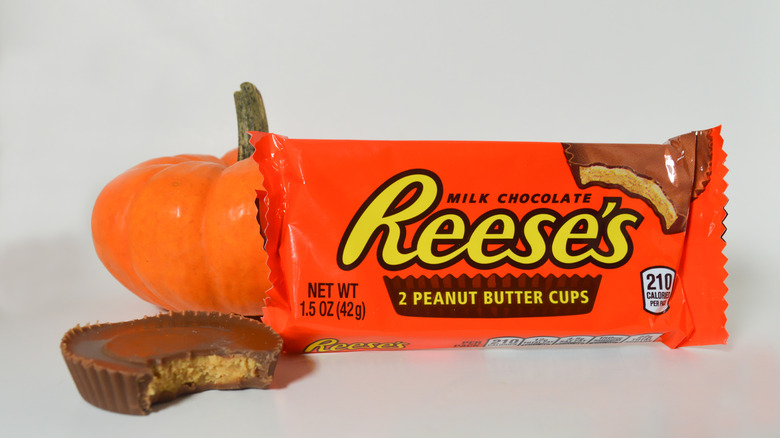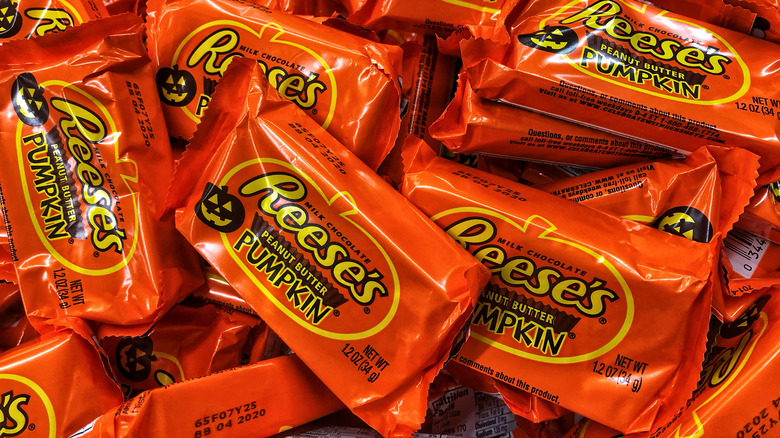Lawsuit Claims Reese's Halloween Candy Had Deceptively Cute Packaging
"OMG! Too cute!" might be a high-caliber compliment to many folks, but in the case of Reese's new Halloween candy lawsuit, cuteness is arguably being treated as a legally punishable offense.
Cynthia Kelly of Florida is suing parent company Hershey for allegedly "misleading" packaging on the limited-time Halloween Reese's candies sold in October 2023. The wrappers were printed with peanut butter pumpkins bearing artistic detail that didn't match the smooth pumpkin-shaped candies inside. The plaintiff argues that the packaging suggests the individual peanut butter candies should have "cute looking" details such as elaborate jack-o-lantern eyes and mouths. In actuality, Reese's peanut butter pumpkins didn't have pumpkin carving-like designs at all.
Kelly wants Hershey to pay a minimum of $5 million in damages to Florida customers over what she considers deceptive packaging. The federal class-action lawsuit, which was filed on Thursday, argues that Hershey has violated Florida's consumer protection laws by omitting label-related designs on its Reese's Peanut Butter Pumpkins, White Pumpkins, Pieces Pumpkins, Peanut Butter Ghosts, White Ghosts, Peanut Butter Bats, Peanut Butter Footballs, and Peanut Butter Snowmen Stockings Bells assortment — all of which come in packaging with detailed designs.
Rallying for pre-carved pumpkins
This isn't the first time that Hershey has been sued over allegedly misleading packing of Reese's cups. Back in June 2019, the company faced a suit for misrepresentation and intentional consumer deception regarding its White Reese's Cups, which don't contain cocoa butter and therefore aren't "real" white chocolate. The candy giant ultimately defeated the lawsuit. Brooklyn federal judge Eric Vitaliano ruled that just because the cups were wrapped in white paper doesn't mean Reese's was actively feeding customers a misimpression. It never explicitly promised chocolate, and a brief scan of the ingredients label provides discerning foodies with all the information they need. In the case of Reese's Halloween candy, one might ask whether the artwork on the packaging constitutes a promise of what's inside.
Examining this new suit, there may be larger legal considerations. Does a product have to look like the advertised version? Many fast-food chains have been sued for displaying "misleading" images of their food (i.e. they look larger or juicer than restaurant offerings). Industry giants McDonald's and Wendy's faced class actions of this nature as recently as 2022. But, suits like these can be dismissed because companies are legally allowed to make items look more attractive if a reasonable person wouldn't be deceived. In the eyes of the law, making your product look extra good for the ad isn't a false advertisement — it's business. With this and other problematic-packaging-related legal battles in mind, the outcome of this new suit bodes well for Hershey.

